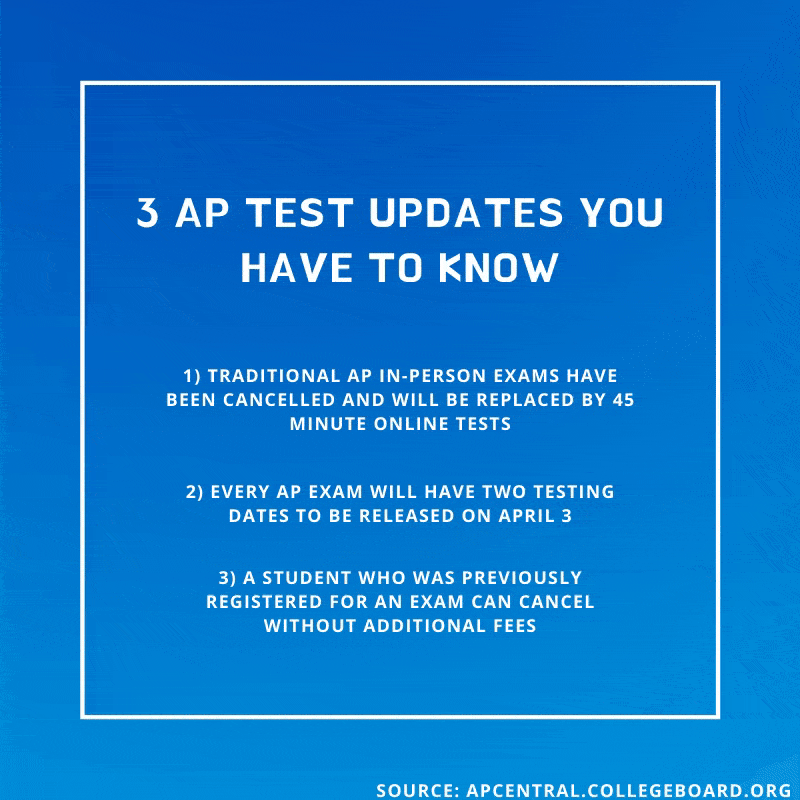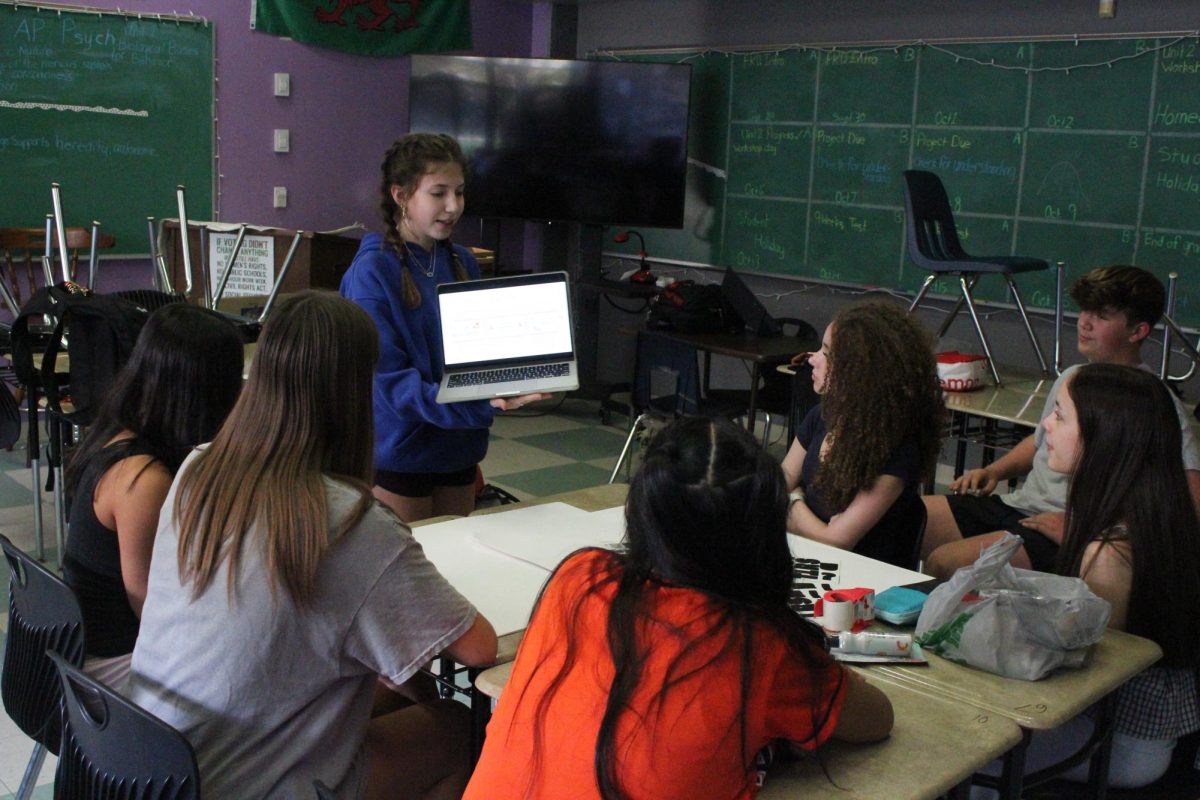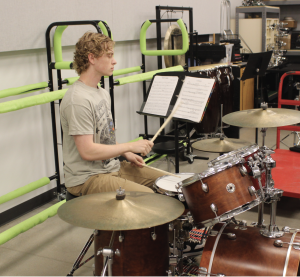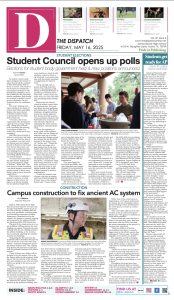The College Board announces changes to 2019-2020 AP exams
On Friday, March 20, the College Board announced that they have put several new policies in action for the 2019-2020 Advanced Placement (AP) exam administration in order to allow students to still be successful despite interrupted educational progress due to class cancellations.
March 20, 2020
On Friday, March 20, the College Board announced that they have put several new policies in action for the 2019-2020 Advanced Placement (AP) exam administration in order to allow students to still be successful despite interrupted educational progress due to class cancellations.
As many populations in the United States partake in prolonged quarantines, the College Board has taken into account that students may be taking the exams at home, and the AP team is currently working to create 45 minute tests that can be completed on any device with internet access.
“Through our members across the country, we understand the new time constraints on everyone in the education community,” the College Board wrote in their public address. “These solutions are meant to be as simple and lightweight as possible for both students and teachers — without creating additional burdens for school leaders during this time.”
In response to the educational interruptions created by school closures that have occurred as part of COVID-19 (Coronavirus) safety precautions, all updated tests will only include content that teachers should have covered completely by early March. In order to see the exact units that will be covered on each exam, the full list can be viewed here.
“I feel kind of nervous about taking the AP exams this year considering the amount of class time that we’ve lost,” junior Kristin Tran said. “However, the accommodations provided are comforting.”
In addition to shortened exams, the College Board will also be offering two testing dates for each exam, and exact administration dates for each test are expected to be released on April 3 on the College Board website.
“I think that having two testing dates is a smart move since students aren’t going to be getting the support they’re used to,” Tran said. “Less classroom instruction means kids will have to rely more on independent teaching and for many this is a big change from what they’re used to. I’m also assuming that the College Board will have different versions of the test, so students won’t be able to take the first testing date and then tell their friends about the material.”
Within their public announcement, the College Board declared that colleges are prepared to accept scores from the modified exams, and the College Board will assist rural and lower-income areas in securing access to technology in order to practice for and complete the exams.
“I am very happy that colleges are still going to accept AP exams because I feel I’ll be able to be successful on them,” sophomore Sadie McDonald said. “If they weren’t going to accept them I would be upset and have a higher amount of stress because I have worked so hard for this whole entire year to get a great score on them.
In order to assist in remote learning and online student preparation, the College Board will be hosting free, live AP review courses, and the College Board will release new content for teachers to use in their AP Classroom beginning on Wednesday, March 25.
“Since we are not going to school, this prep work can majorly benefit students because they can use these resources to get a better idea of what the test will be like,” sophomore Zoya Faisal said. “I will definitely be using the resources the College Board provides us because it will help me prepare to do well on the exam.”
Although the College Board encourages students to prepare for and complete the modified exams, previously registered students can cancel their exam registration for any test without an additional charge.
“Nothing is ideal, but this solution allows students to still earn college credit for their work,” AP World History teacher Wendy Uzzle said. “It also makes it more equitable for students both nationally and globally who are at different places in the course curriculum. It also tries to support students in different educational settings right now, some still getting online instruction, some only allowed to be given review content, and others, like AISD, currently under a cancellation.”
Additional reporting by Faith Lawrence, Arushi Sharma, and Anna Holme
*The story will be updated by Dispatch staff as more information is available.










